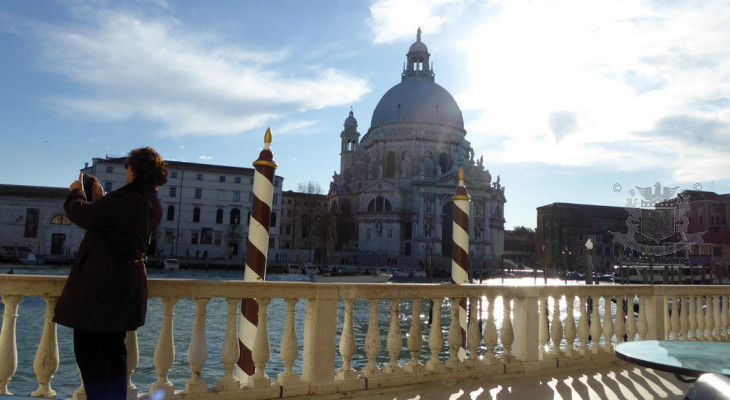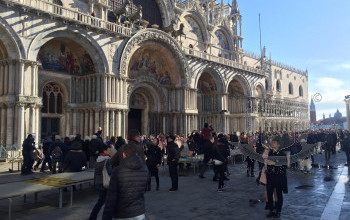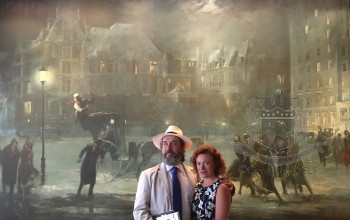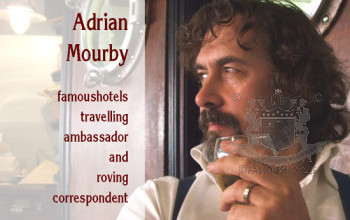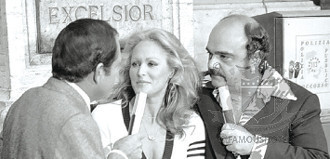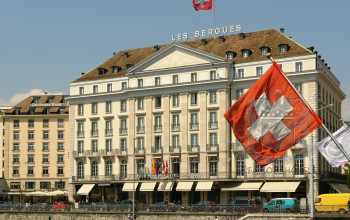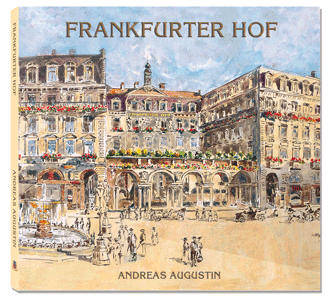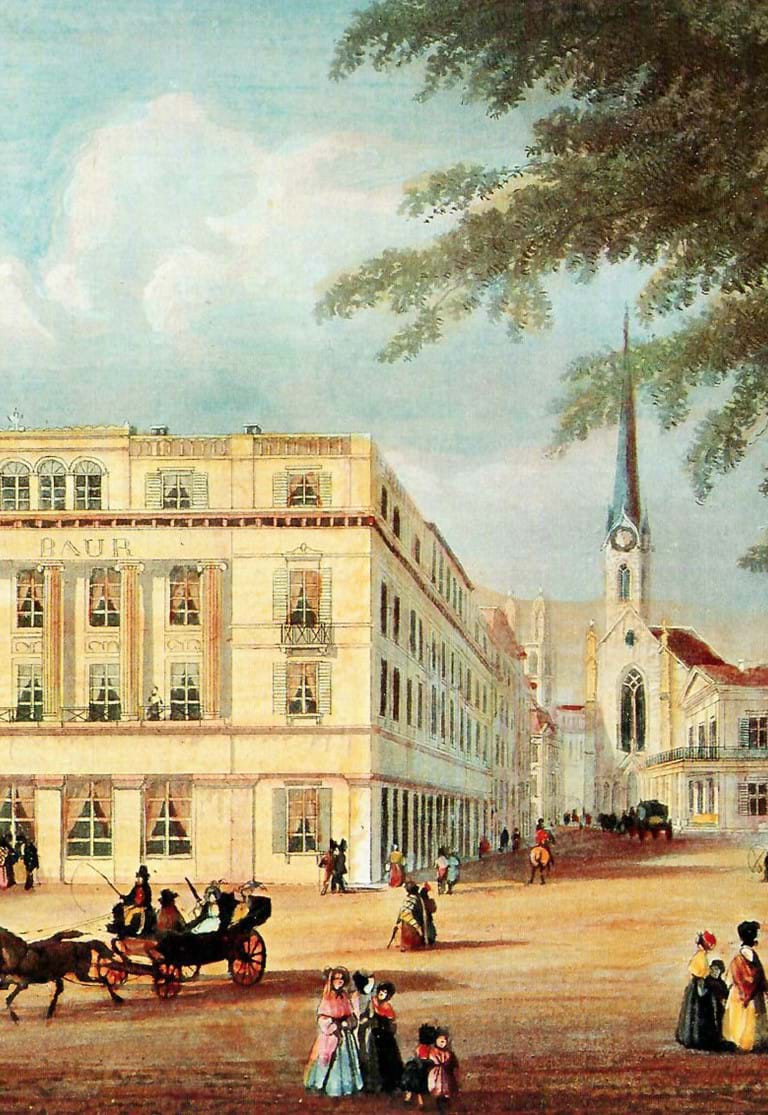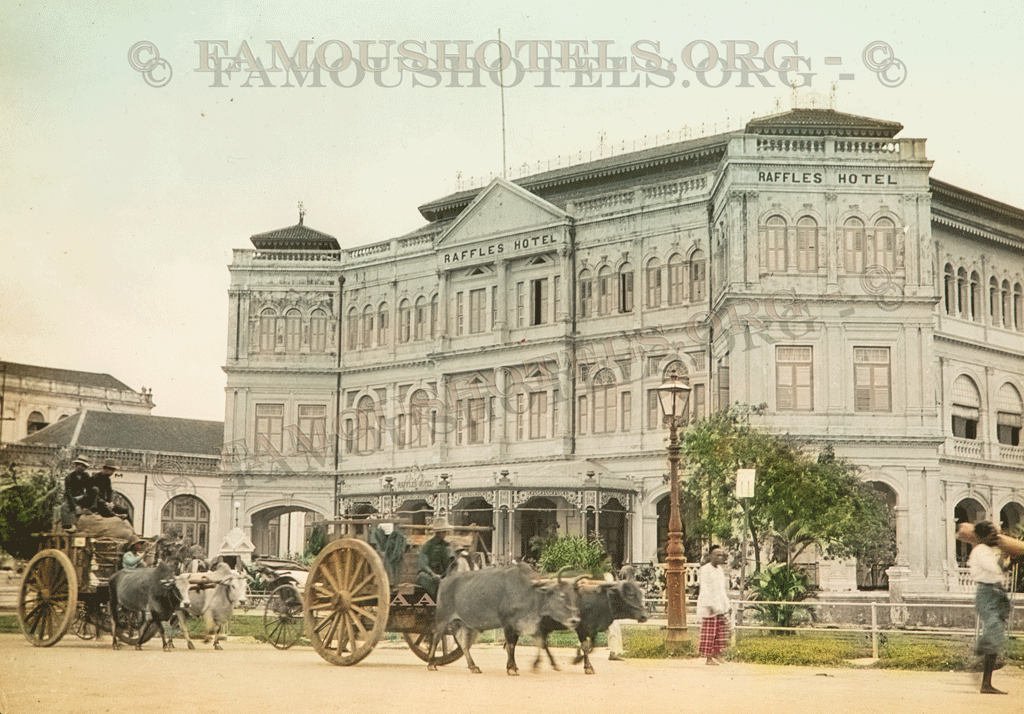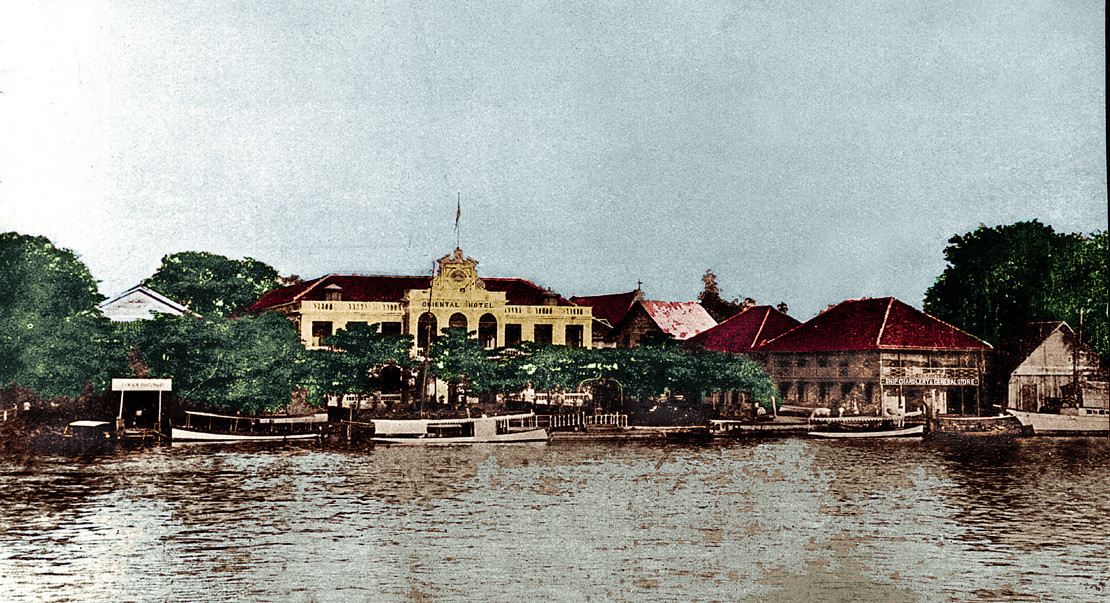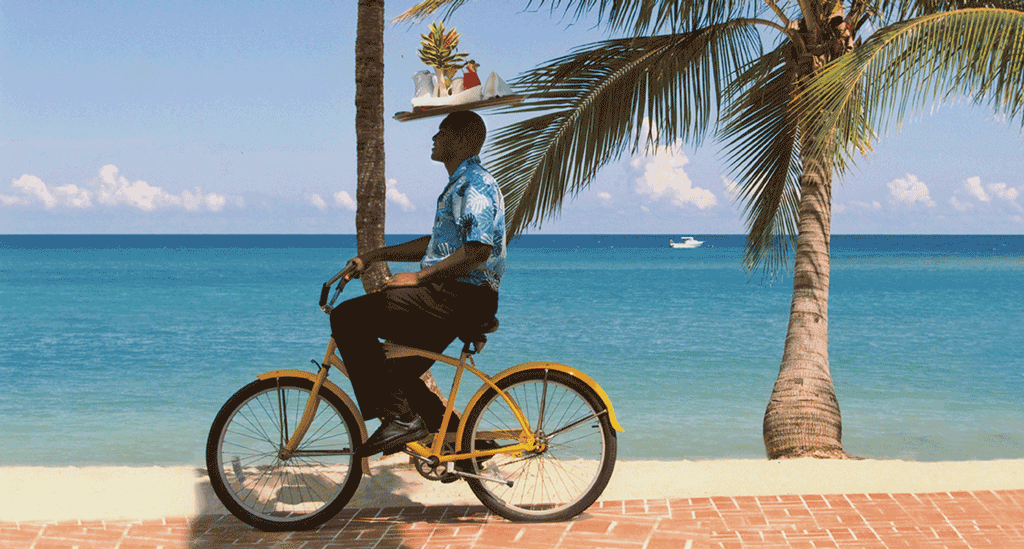Mourby of Titanic
( words)
A terrace with a view: Maria della Salute opposite of the Europa & Regina.
VENICE:
Recently I was booked for dinner at Venice’s Westin Europa and Regina.
Many famous people have dined here, including Claude Monet, Marcel Proust and the great Italian actress Eleanora Duse. The great English novelist Arnold Bennett stayed here too, complaining that after a happy day visiting Torcello with his packet of sandwiches, he had the mosquito netting around his bed at the Britannia fall down and hit him on the forehead.
For me, Proust though is always a good author to follow into hotel dining rooms. The French novelist was notorious for existing on coffee and just one croissant a day when at home, but he gorged himself on the very best when dining at the Ritz and other grand hotels. Well, so would we.
Venice’s Westin began hotel life as The Barbesi. In 1868 a narrow palazzo on the Grand Canal belonging to the Tiepolo family was converted into a hotel. The Barbesi family ran a number of commercial hotels in Venice. The English novelist George Eliot stayed at one of their Venetian properties in 1864. This new Barbesi enjoyed an enviable position opposite the church of Santa Maria della Salute. In 1881 it was bought by a German hotelier called Karl Walther who renamed it Britannia in the hope of luring in the British, who at the time were the wealthiest tourists visiting Italy. An early twentieth century visitor was Claude Monet who had painted Santa Maria della Salute in 1908 while a guest at Palazzo Barbaro and was delighted to move on to the Britannia that October, writing home to his wife, “We have finally arrived at the Hotel Britannia, with a view, if such a thing were possible, even more beautiful than that of Palazzo Barbaro.”
At the beginning of the twentieth century there was a terrace to the western side of the Britannia from which guests could descend to swim in the Grand Canal. Behind that terrace rose Palazzo Barossi, which the Britannia eventually absorbed, allowing for a lofty new dining room set back behind the terrace. This was where Proust probably feasted, but today it is divided into two function rooms, the Grand Salon and the Sala Canaletto.
Nowadays visitors prefer to dine much closer to the water, to enjoy those views that so delighted Monet. But then these days the hotel enjoys a much wider waterfront. In 1979 the Britannia was merged with Hotel Regina next door to double its shoreline.
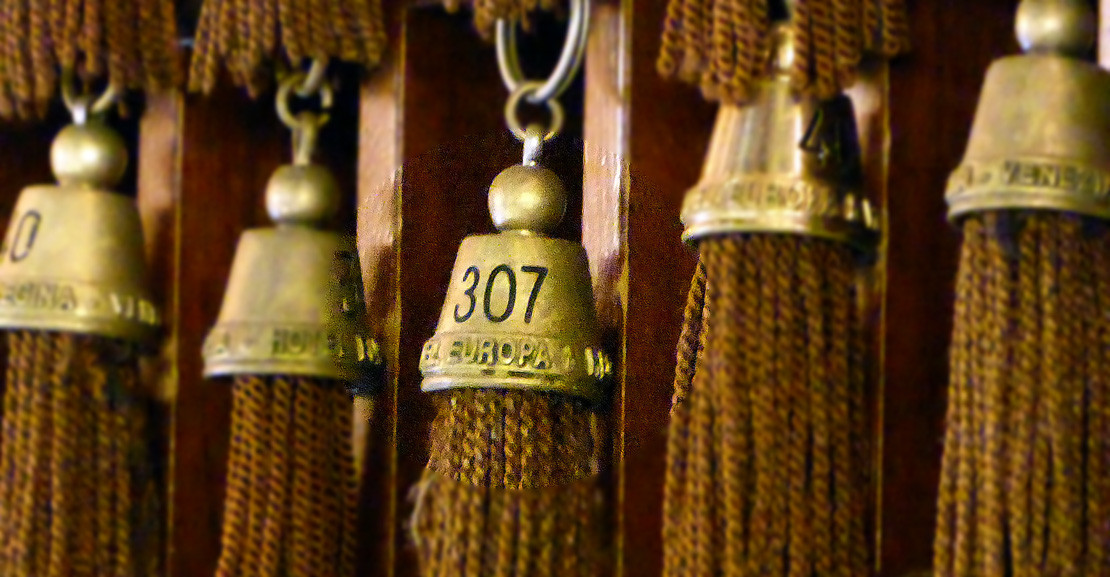
Good old keys — long lost in many other Etablissements.
The Regina had opened soon after the Britannia as a petite hotel called the Rome et Suisse that was owned by a Sgr Fenili. It was built over an old gondola workshop that stood next to the Britannia. In the 1930s Hotel Rome et Suisse changed its name to Regina after Elena, wife of King Vittorio Emanuele III. By 1938 the two neighbouring hotels had both become the property of the mighty Compagnia Italiana Grandi Alberghi (CIGA) who then changed Britannia’s name to Hotel Europa & Britannia.
I was looking forward to eating on the Grand Canal which provides one of the best floor shows for diners in the world as gondolas, vaporetti and water taxis weave in and out and past each other.
Today the hotel consists of five old palazzi, having absorbed Ca’Nova and a long thin palazzina along the way. The five are joined together like a three-dimensional jigsaw puzzle. As my wife and I made our way through to the Regina’s terrace there were encountered a lot of steps and changes of level in the polished black and white tiled floors. It was only in 1979 that the Regina and the Europa & Britannia were united and a decision was taken to keep retain the existing room levels which makes it easy to see where the Regina ended and Europa & Britannia began and how the other smaller palazzi were incorporated between them.
We crossed the Grand Terrace which now functions as an open-air extension of the Tiepolo Bar (housed in the old Britannia) and wove our way to the Regina’s own terrace which is very popular for canalside dining nowadays. Tastes change. Given his highly sensitive nostrils Proust would probably have been horrified at the idea of eating on the side of a canal. When the nearby Gritti Palace opened in as a hotel in 1948 the most expensive bedrooms were far away from the Grand Canal as it was considered a noisy and smelly inconvenience. These days all the hotels along the Grand Canal have their most expensive rooms overlooking this busy watercourse.
In 2000 Marriott rebranded the Regina & Europa Britannia as the Westin Europa Regina. Hotels do change their names a lot – one gets used to that – but as a British fan of Venice I do feel it’s a shame that we Brits have lost our 119-year connection with this hotel.
My wife and I were eating this evening at InAcqua, the hotel’s new restaurant, created by executive chef Alberto Fol. It opened this June offering a menu that combines local produce with Westin’s own selection of Superfoods. It also has the first open kitchen in a Venetian hotel, a surprisingly late innovation, I would have thought. We passed the kitchen on our way to the dining terrace. It was bright and noisy as open kitchens are. More innovations were to follow however when we were shown to our table, which was not just on the Grand Canal but extending out into it like the prow of a ship. It’s officially called the Floating Table but the staff refer to it as “The Titanic”.
So we sat there jutting out into the Grand Canal with parked gondolas drawn up on one side of us and merrymakers on the Grand Terrace on the other. There were so many of them spilling out of the Tiepolo Bar that I could see those nearest the balustrade might soon tip into the waters below like their canal-bathing forebears.
No doubt Claude Monet would have been in seventh heaven seated at the Floating Table with his easel. It’s about as close to Santa Maria della Salute that one can get on this side of the Grand Canal - without swimming. And the food? Well, the Mare Nostrum, a selection of local raw fish and the garlic and chilli pepper cuttlefish tagliatelle would, I’m sure have kept M. Proust very happy indeed.
Adrian Mourby
It is the generosity of the publisher who accepts this article about a hotel not being a member of The Most Famous Hotels in the World. We are still waiting for the management to send in the application.

